Top photo Julia Pasternak, Camera Assistant.
Photographs by Konstantin Sergeyev
Text by Malwina Grochowska
The film business is still a man’s world. A movie set can often feel like a construction site, minus the swearing in a foreign language. Men are carrying around and setting up heavy equipment: positioning the lights, operating the dolly, the camera; they are managing the site: giving commands, taking care of logistics, while women’s involvement is limited to wardrobe and make-up departments, and of course acting.
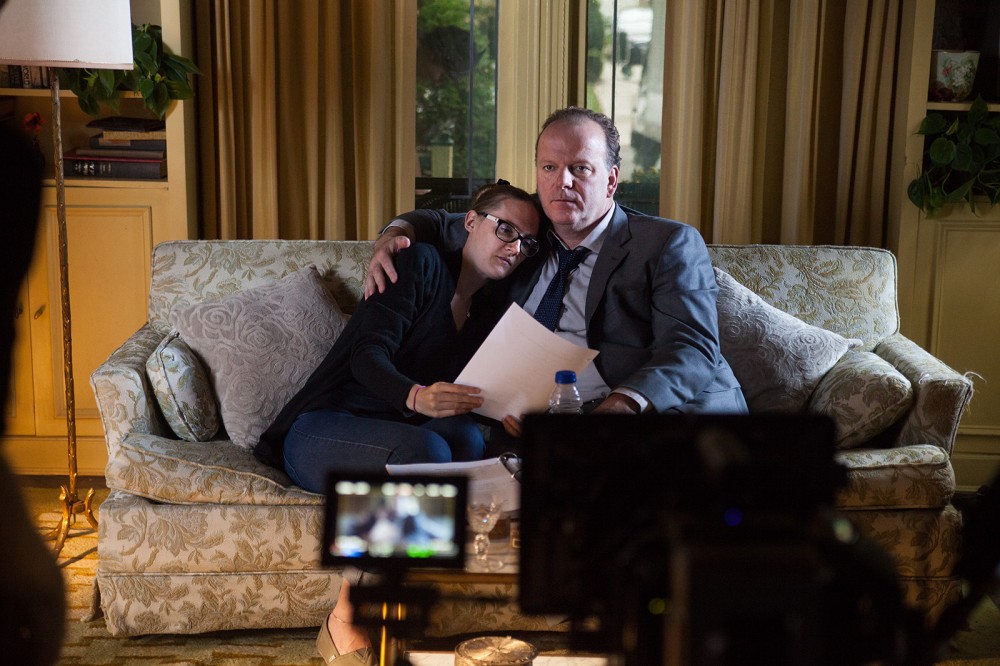
Statistics reinforce this perception rather brutally: in 2013 women comprised only 16% of people working on key behind-the-scenes roles in top 250 grossing movies. The situation looks a bit brighter for women in independent cinema: they accounted for 26% of individuals working as directors, writers, producers, executive producers, editors, and cinematographers on films screened at high-profile film festivals in the United States in the last two years.
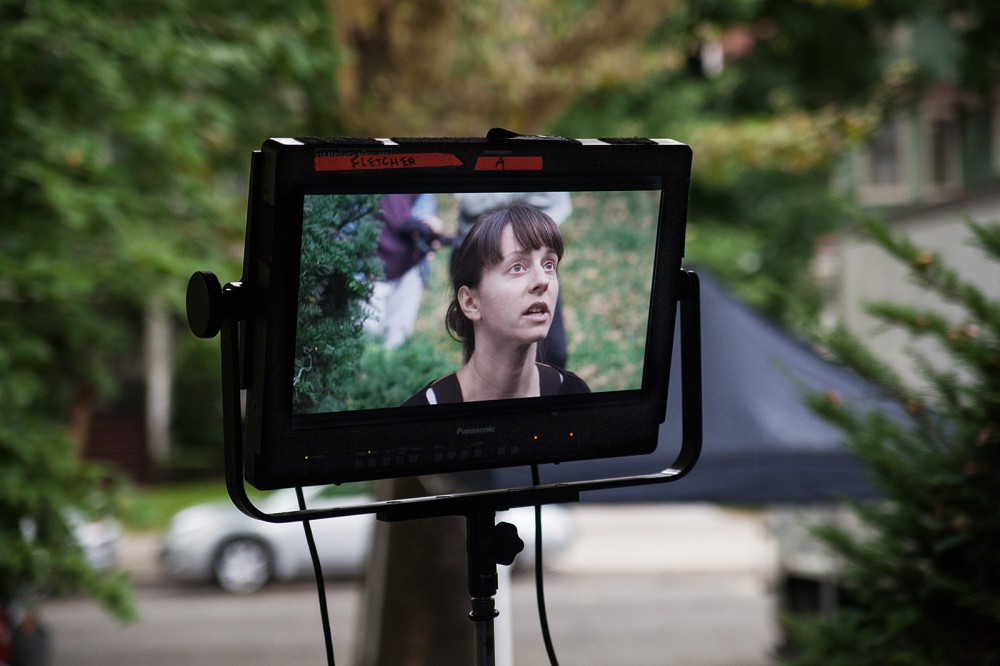
A very different dynamic was at play on the set of Sugar!, a low-budget film about a middle-aged wife of a Republican candidate for Senate, who decides to change her life and secretly forms an all-female rock band. Compared to many other film sets I have been to, arriving at this one felt like stepping into a parallel, feminist universe. In a Victorian house in Brooklyn’s Ditmas Park, the crew was more or less equally gender-divided. But, crucially, women were in charge, credited on the project as producer, director, writer, cinematographer, art director, and production designer.
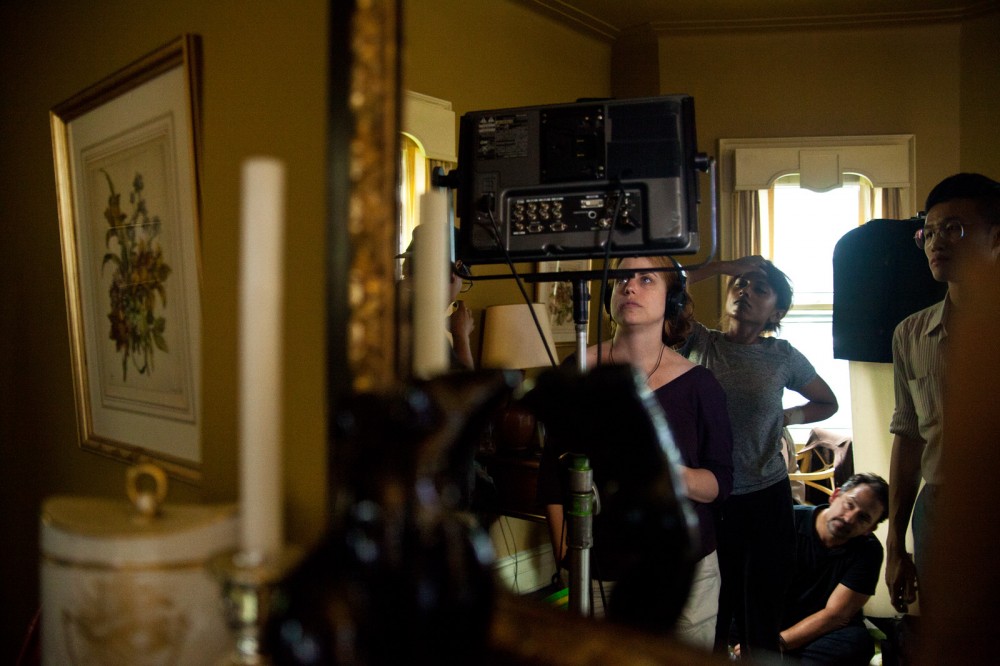
It was not a coincidence. “Too often I was one of very few women on the set. I just got tired of that,” says producer Lauren Rayner, who was engaged by the duo behind the film – screenwriter Leora Kalish and her husband, executive producer Robert Kalish – early in the process. “I know women can do even the physical film jobs well, like the one of key grip. They are just told they shouldn’t. And there’s a presumption they don’t want to. But yes, they do, and they are doing it,” Rayner told me between discussions with another producer about the movie’s budget and putting out hummus and vegetables for the crew.
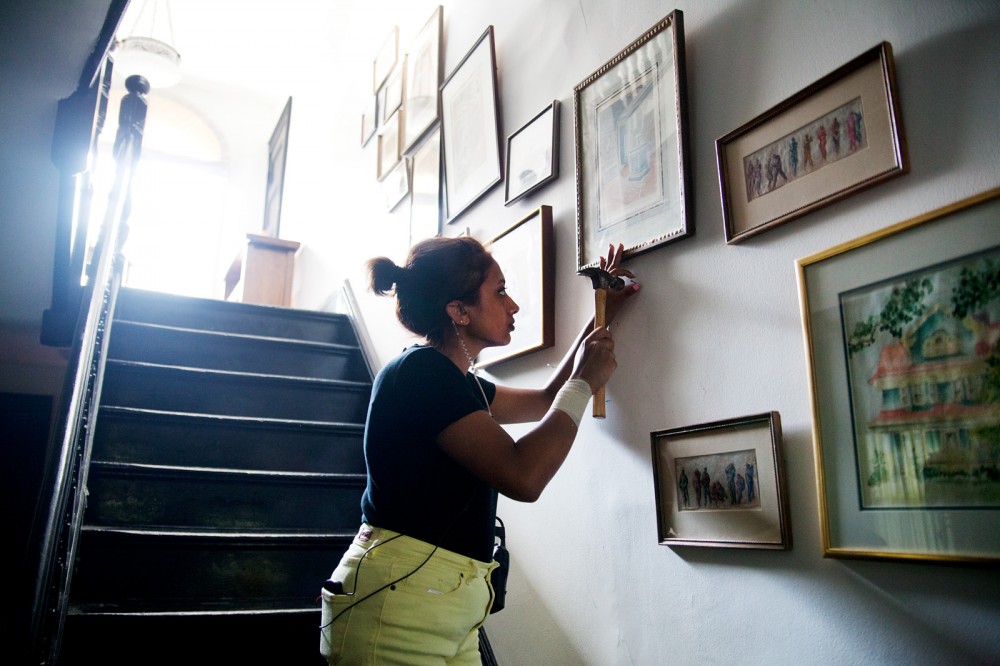
The original plan was to get as close to an all-woman crew as possible. The team looked for a female electrician and gaffer, but ended up with men at these positions, mostly for financial reasons: there are so few women doing these jobs, they are in high demand and turned out to be impossible to get with Sugar’s! limited budget.
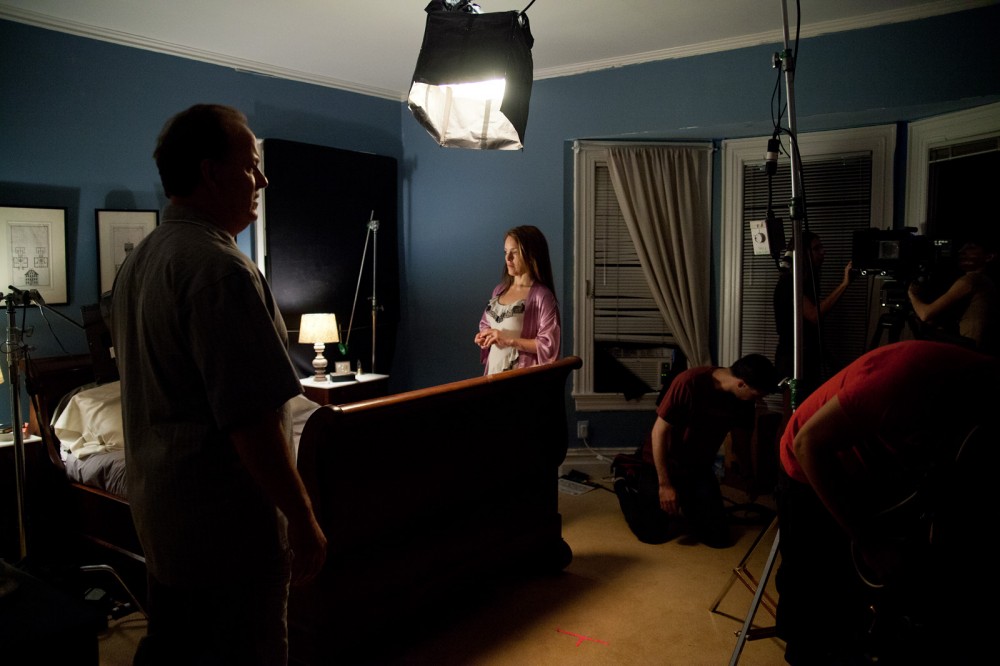
However, the priority was to bring a female director and cinematographer on board. “It is a woman’s story, written by a woman, and we knew it should also be seen with a woman’s eyes,” says Rayner. Shari Berman, who was hired as the director, admits that female-centered stories are her cause. She debuted with “My Life as Abraham Lincoln,” featuring a tormented heroine. On Sugar!, Berman, joined by cinematographer Fletcher Wolfe, set out to create on screen the world of Leslie, played by Tony Award-winning actress Alice Ripley.
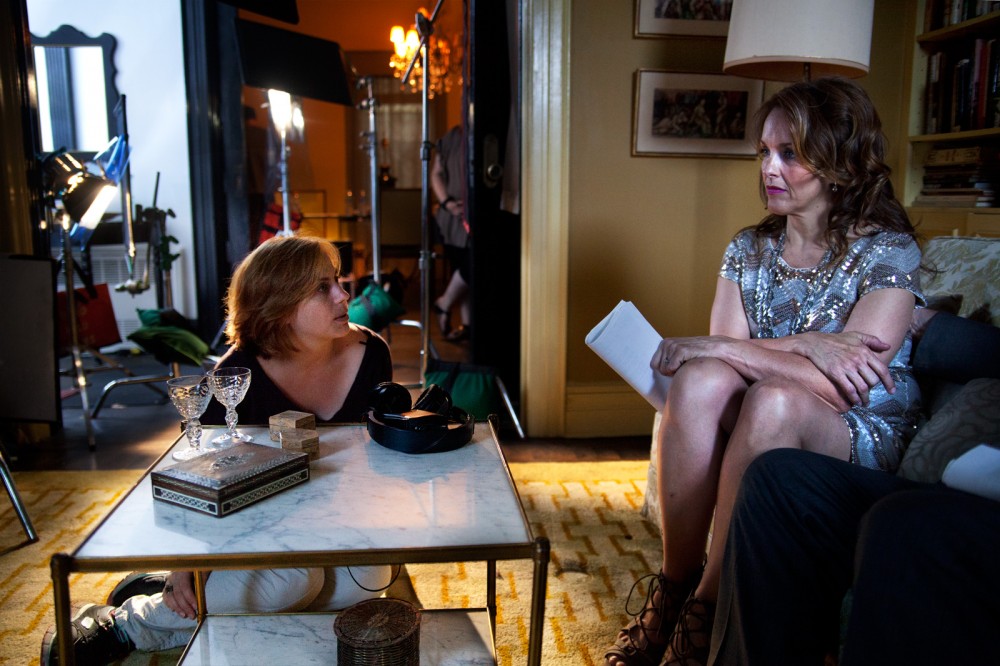
Leslie spent a good part of her adulthood as an All-American housewife, leading a perfect life, at least at first look. Stories of complex heroines like her, although with a rich literary tradition from Flaubert to Ibsen, are too easily dismissed in mainstream cinema. The Sugar! team found this out early in the fundraising process. “A film about a housewife who follows her dreams? It doesn’t exactly include many explosions; it’s also not lesbian horror. That’s what people are more eager to invest in,” says Rayner. “But the truth is we’re telling a universal story here, that not only women can relate to. She has much more going on that we’d suspect her to.”
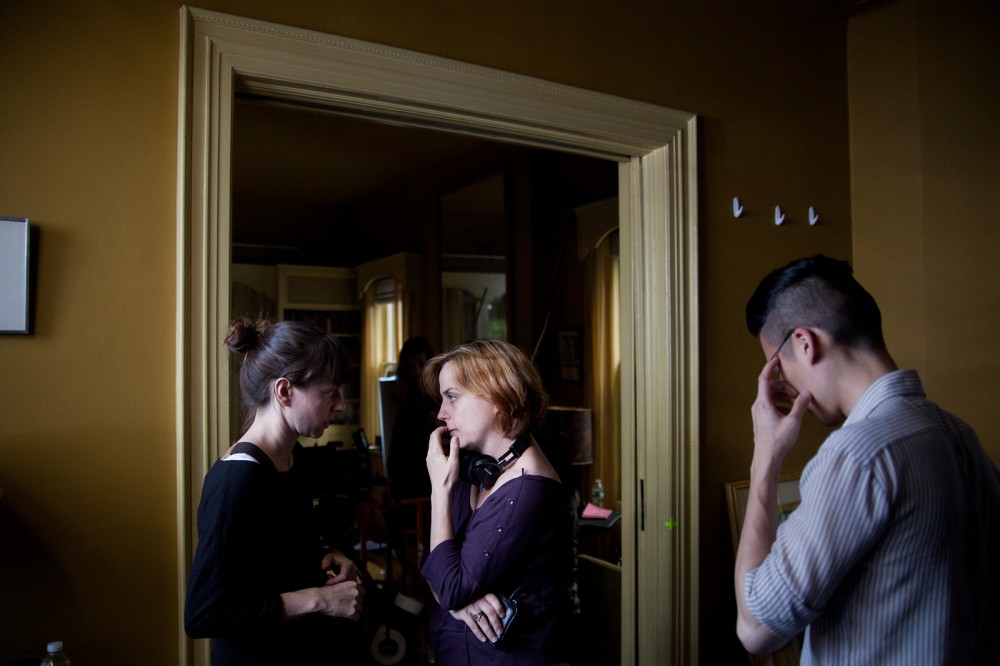
This kind of dismissive attitude is something that women working in the movies can understand all too well. “Somebody said to me: You’re having all these women on the set. Somebody is going to end up crying,” recalls Berman. Rayner observes that when she yells at the crew, they become very upset, call her a bitch, etc. “When a male producer yells, they say: Oh, he’s being authoritative.”
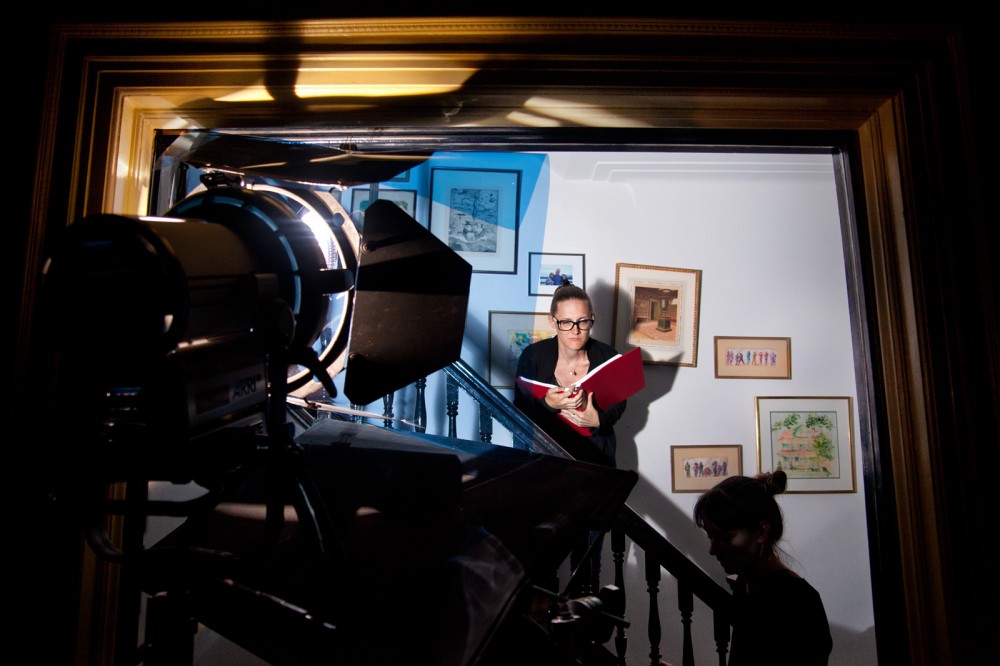
Then there’s also the physical aspect of the work. Wolfe weighs a little over 100 pounds. “Half of our film is hand-held,” comments Berman. “If you judge Fletcher from just her looks, you’ll think she can’t carry around a 40-pound camera for ten days, twelve hours a day. But she can, I saw her doing it.” Wolfe once lied about her weight, because her abilities, or rather lack thereof, were inferred from her fragile appearance.
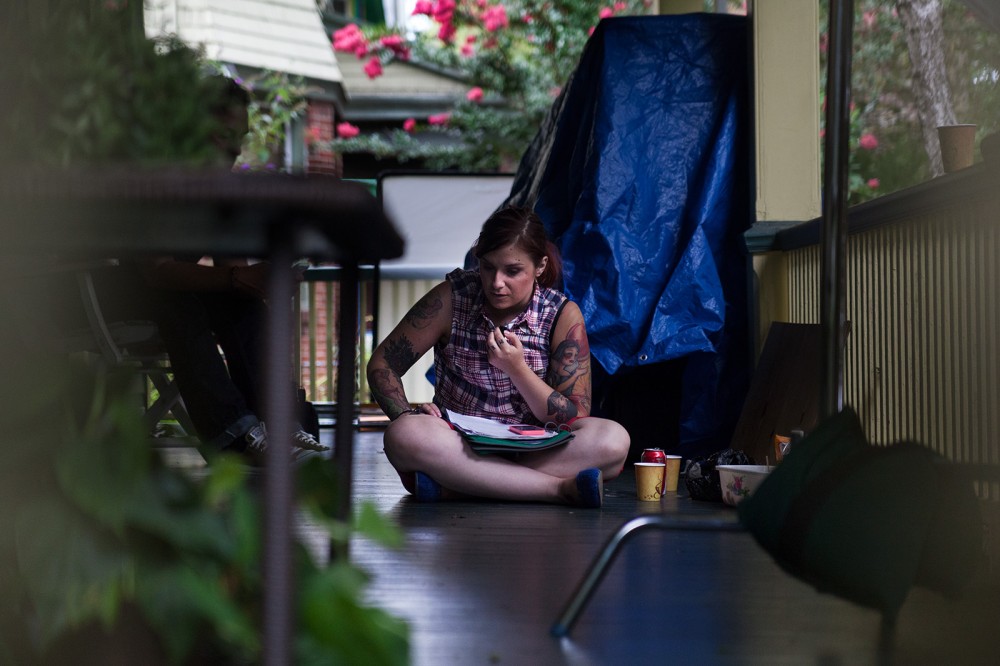
Otherwise, she is the first to admit she’s not capable of something. “There is definitely a lot of male overconfidence in the film industry. Many people say things they can do, although they can’t. I’m not one of them, so it took me longer to climb the ladder,” Wolfe observes. “Fairly consistently women are staying in the background, because they have been taught that if you’re not doing it better than men, you shouldn’t even try to succeed. At least that’s how I feel: If I don’t do my job well, then somebody will say: Oh, that little girl took the job and she couldn’t do it.” Berman adds, “It’s a responsibility: you’re representing the minority, so you have to be cautious, because it could be an excuse for somebody to say: You see what happens when they hire a woman! And I want to say in such situations: No, that’s not what happens. It’s just me. I fucked up.”
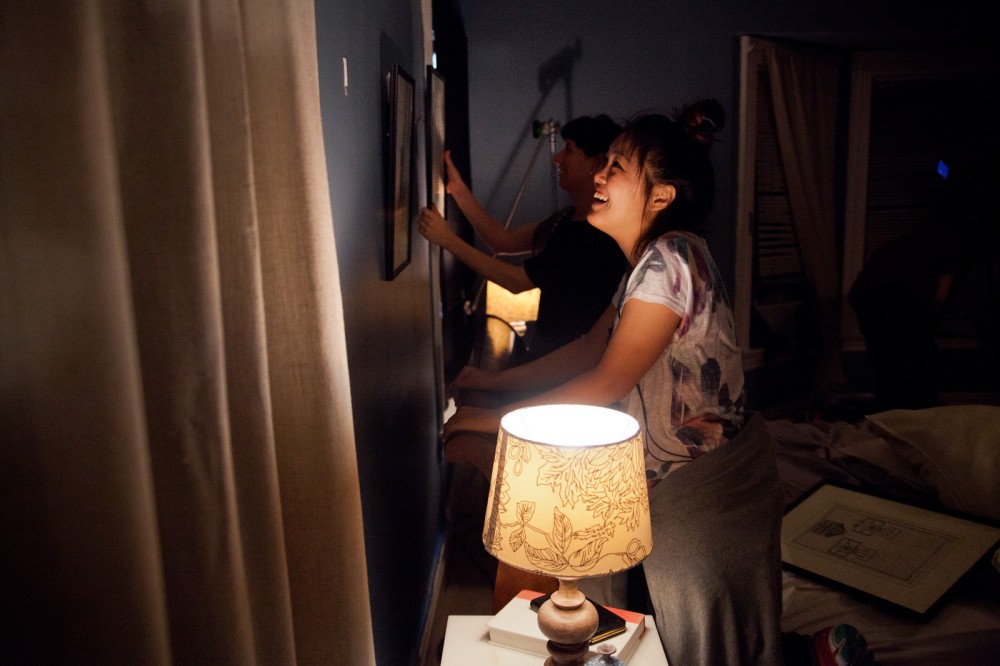
Gender profiling also results in putting girls in positions they may not necessarily want. Rayner, Berman and Wolfe have each heard more than once they are too pretty for their jobs, and should be actresses instead. Berman was also advised many times at the beginning of her career that she should work as a script supervisor. The job is often called “script girl,” and includes many secretary-type tasks, like listening to what other people say and taking notes.
Not surprisingly, Sugar! hired a script boy.


